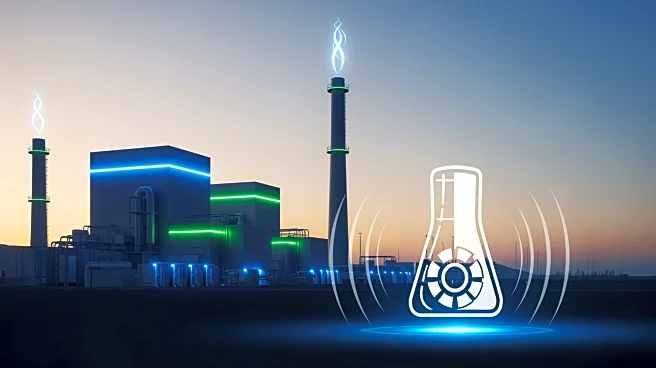What's Happening?
A new study by Urenco, supported by the World Nuclear Association, reveals the significant potential of small modular reactors (SMRs) to decarbonize industrial energy use. The report suggests that SMRs could
provide a net-zero solution for 80% of industrial energy demand by 2050, with a potential market of 700GW. The study outlines the need for improvements in manufacturing, licensing, and policy support to unlock this potential. Key industries that could benefit include synthetic fuels, coal repowering, data centers, and chemicals, with additional opportunities in food and beverage, iron and steel, and district energy sectors.
Why It's Important?
The development of SMRs represents a promising avenue for reducing industrial carbon emissions, a critical component of global efforts to combat climate change. By providing a reliable and scalable source of clean energy, SMRs could help industries meet decarbonization commitments while ensuring energy security. The study underscores the need for coordinated policy and industry efforts to realize the full potential of SMRs, which could significantly expand nuclear capacity and contribute to global net-zero goals.
What's Next?
The successful deployment of SMRs will require overcoming regulatory and financial barriers, as well as fostering innovation in reactor design and manufacturing. Governments and industry stakeholders will need to collaborate on creating supportive policy frameworks and investment strategies. As the market for SMRs develops, it could drive technological advancements and create new economic opportunities in the nuclear energy sector.









